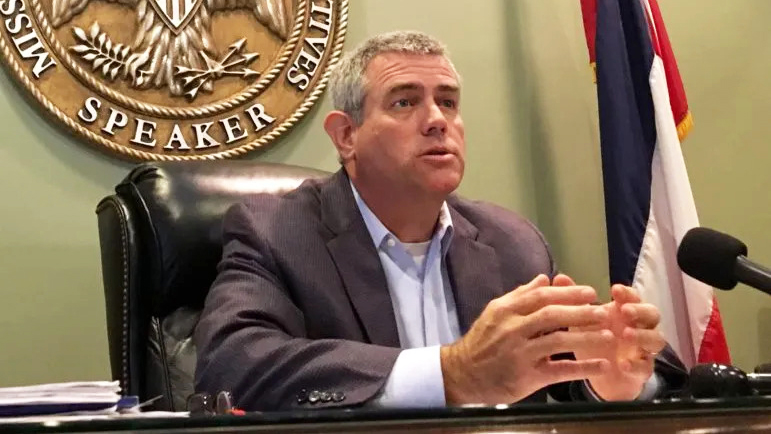House leaders say they won’t fully fund MAEP ‘black hole’ as lawmakers try to reach budget agreement
Published 8:00 am Monday, March 27, 2023

- Mississippi Speaker of the House Philip Gunn
Lawmakers on Saturday continued to haggle particulars of a roughly $7 billion state budget, and reported some progress.
But they remained at loggerheads on some big ticket items, particularly the more than $2.6 billion K-12 education budget. House Speaker Philip Gunn and his top budget lieutenants said they are firm on refusing to fully fund the Mississippi Adequate Education Program formula or add any more money to it as Senate leaders have proposed.
Instead they want lawmakers to earmark directly to programs, such as one that has benefitted Speaker Gunn’s former chief of staff. Gunn said he supports funding a revolving loan program for schools lawmakers funded last year, for which his former chief of staff Nathan Wells and a former chair of the state school board benefitted.
Trending
“Our position has been clear for quite some time,” Gunn said. “… The formula doesn’t work. It’s broken. It doesnt work. We are putting more money into education, we believe in that, but we are not going to do it with the formula.”
Lawmakers facing a Saturday night deadline were filing numerous budget “dummy bills,” with blanks for numbers to keep them alive and continue negotiations. Lawmakers will return to the Capitol on Sunday for more budget work, and are expected to end their 2023 session sometime next week.
House Education Chairman Richard Bennett on Saturday also said emphatically that House negotiators would not agree to the Senate’s proposal to fully fund the Mississippi Adequate Education Program formula, at a cost of about $181 million more a year.
“We have no plan of putting more into MAEP,” Bennett said. “If we gave them the $181 million today, I believe it would not have a major impact in the classrooms. The education department would get more money, the home offices would get more money. But if we put it in the black hole they call MAEP, it’s not going to get into the classrooms.”
Bennett said House leaders want to put “a lot more new money” into education this year, but want to direct where it goes, not put it into the formula that is supposed to provide the state’s share of money for the basic needs of districts, such as teacher salaries, utilities, textbooks and transportation.
Bennett said House leaders want to fund a raise for teacher assistants at about $22 million and direct money to numerous other programs that would probably equal an increase close to the Senate’s MAEP plan.
Trending
“I would like to … put $44 million into the revolving loan fund for schools that we put $40 million into last year, for capital projects,” Bennett said. He said the zero-interest loan fund regenerates itself, and he would like to see it at around $100 million soon, so that schools could use it to build more pre-K facilities. Gunn also listed the program as an area the House wants to increase K-12 funding.
The PATH Company, founded by Gunn former chief of staff Nathan Wells and former state school board Chairman Jason Dean, received a contract of up to $3.6 million over four years to administer the loan program for schools. The company is responsible for reviewing schools’ construction plans and ensuring they are “critical infrastructure improvements, adhering to building codes and monitoring repayment of the loans.
School leaders and advocates statewide have for years pushed lawmakers to fully fund the MAEP formula they put into law three decades ago, but it hasn’t been fully funded since 2008. The Senate plan this year includes changes to the formula that would reduce the increase needed to fully fund MAEP this year from $261 million to $181 million, but education leaders said they support it because if lawmakers used the formula it would provide predictability for when school districts set their budgets.
Some other major items lawmakers continued to negotiate Saturday include:
Tornado damage: Legislative leaders, including Lt. Gov. Delbert Hosemann, Gunn and Senate Appropriations Chairman Briggs Hopson III, whose district was impacted, on Saturday toured areas of Mississippi devastated by Friday night’s tornadoes. Lawmakers are expected to consider whether some emergency funding will be needed for the areas or the Mississippi Emergency Management Agency before they end the 2023 legislative session in coming days. Gunn on Saturday asked for prayers for families who lost loved ones in the storm, and told House members that MEMA reported it would need at least an additional $5 million to deal with the destruction, and he expects the Legislature to take that up in its final days of session.
Gunn described to House members how devastating the total destruction he saw was, and after adjournment showed cell phone video he shot. “Those are steel I-beams,” he explained of one clip. “Do you know how much force it takes to twist an I-beam like that … I have just never seen anything like this.”
A hospital bailout: Lawmakers are expected to use a mix of federal pandemic relief money and state dollars to provide grants to the state’s struggling hospitals. The Senate passed a measure for $83 million in grants. Hospitals have asked for $250 million. Lawmakers expect to approve more than $83 million, but likely nowhere near the $250 million. The Senate’s plan would route more of the money to rural hospitals — many on the brink of closure — while the House’s proposal would benefit larger ones.
Roads: The Senate passed a measure to provide an extra $620 million to the Mississippi Department of Transportation for work on major “capacity” thoroughfares. The House amended it to spend $800 million. Gov. Tate Reeves recently called for lawmakers to approve $1.3 billion, and let him choose what roads get built or expanded this election year. Legislative leaders on Saturday said they expected House and Senate negotiators to land somewhere between the Senate’s $620 million and the House’s $800 million.




